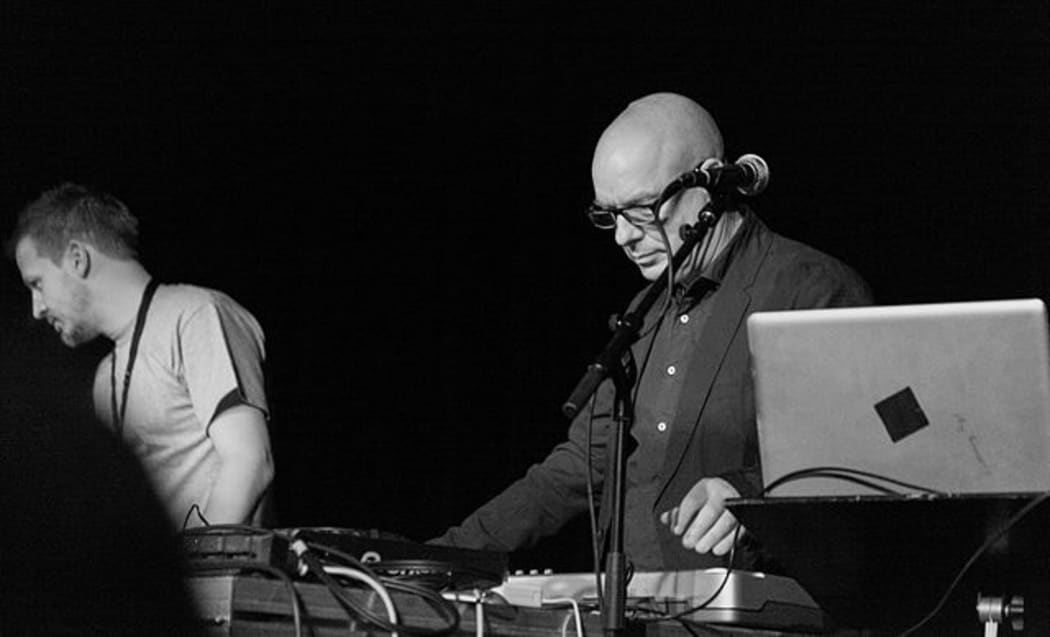After leaving, or being forced to leave, Roxy Music after their first two albums in the early 1970s, the art school-educated Brian Peter George St John le Baptiste de la Salle Eno has embarked on a hugely varied and consistently interesting career.

Photo: Wikicommons
Eno has moved effortlessly between psychey, garage rock, proto punk, world music, ambient music and Krautrock collaborations.
His producer credits distinguished and numerous; from New York no-wave scenesters Devo and Talking Heads to Bowie’s Berlin Trilogy (Low, Heroes, Lodger), and huge selling albums for U2 and Coldplay.
Eno has also worked with Paul Simon, Slowdive, Damon Albarn, Icehouse, Suede and Depeche Mode, and is responsible for the 6-second long piece of music that accompanied the start-up of Windows 95 (which he admits he wrote on a Mac!)
He has consistently brought interesting and non-mainstream ideas into the mainstream and has been a fascinating cultural commentator.
His ‘oblique strategies’ cards have proven influential in terms of helping people break from established creative patterns and creating new musical ideas.
A progressive thinker, self-described “non-musician”, brilliant collaborator, cultural guru, creator of art installations and music apps for iPhone/ iPad, Eno remains one of the most fascinating, idiosyncratic and influential figures in popular and contemporary music.
The reissue of audiophile versions of his first four solo albums from 1973 to 1977 illustrates his continued influence and radical innovation.

